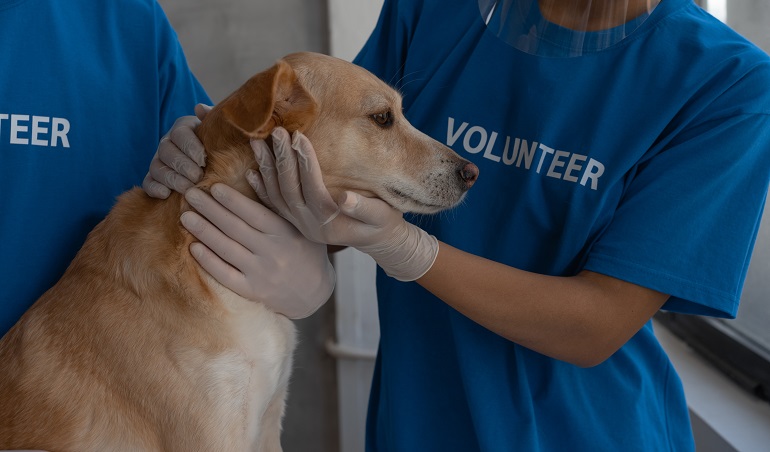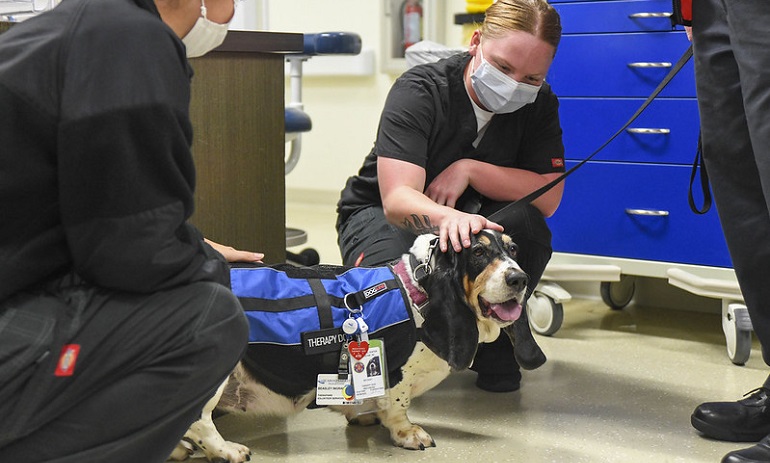Saying goodbye to a beloved dog is heartbreaking, but sometimes surrender is the only option. Understanding the reasons behind this difficult decision – from behavioral challenges to lifestyle changes – is crucial. Before resorting to rehoming, explore alternatives like training, medication, or temporary fostering. This guide offers compassionate advice, practical tips for finding reputable shelters or rescue organizations, and resources to support both you and your dog through this emotional process. Your dog’s well-being is paramount, and finding them a safe and loving new home is a final act of love.
Giving up a dog is never an easy choice to make. Whether it’s changed circumstances, behavior issues, or even the arrival of a new baby, parting way with a pet can be especially difficult and fraught with emotional distress for you and it.
Dogs are able to perceive and feel things, which means they can experience positive and negative feelings, such as joy, pain, pleasure, and distress.
And while you understand that a pet shelter or rescue is a temporary measure, your dog doesn’t understand that. All they know is that their favorite human and familiar surroundings are gone.
A shelter will never mirror the individual attention and support of a home. But if there really is no other option, then you will want to make sure that the choices you make are informed and in your pet’s best interests.
Reasons a Dog May Need To Be Surrendered or Rehomed
Sometimes there are several sad but legitimate reasons for surrendering a dog. Unfortunately, this means a tough decision has to be made. Do you rehome or surrender your pet?
Behavior Issues
Undesirable behavior such as excessive barking, house soiling, jumping, and aggression towards other animals or people are amongst the leading causes of a dog being relinquished to a shelter in the US. You can try to eliminate this undesirable behavior by training your dog to stop barking.
Yet some of these behaviors that pet owners find undesirable are more an issue of a lack of training than a severe behavioral problem. Therefore, the best remedy before relinquishing a dog would be to commit to a training program and address these behaviors.
Aggression, however, is a more serious behavioral problem in a dog that requires determining whom your dog is aggressive toward and, if possible, understanding the reason for these actions.
Management of these concerns can include taking on the services of a behavioral professional or even neutering or spaying your dog.
You Got Sick or Hurt
Sometimes, events out of your control dictate that a hard decision must be made in your pet’s best interest.
Chronic diseases or accidents that require ongoing medical attention or limit daily living activities may contribute to the decision to surrender or rehome a pet.
Dogs require physical activity to release pent-up energy, which is important not only for their physical health but their mental health as well.
If these needs are unmet, the dog can put on weight, suffer from problems such as arthritis and obesity, and even develop behavioral issues.
You Have a New Baby
Dogs form social attachments to people, and the arrival of a new addition to the family can often be the cause of great distress for a pet. As a result, problems such as anxiety and house soiling can occur.
A dog will face overwhelming sights, sounds, and smells when a new baby enters the family circle. Some pets will find this upsetting, especially if they did not have the opportunity to spend time with children as a puppy.
As routines are altered to accommodate the new arrival, a dog’s routine will be changed too, and they may feel displaced. The animal will receive less of your time and attention, which may be difficult, especially if the dog has been the “only child” for a while.
Pet Allergies
Dander is one of the most common and stubborn allergens produced by dogs, cats, and birds. Made up of dandruff-like flakes and proteins from an animal’s saliva and urine, dander can trigger pet allergies and aggravate asthma.
But other substances in and around a home can also trigger allergy symptoms similar to dander, such as dust mites, mold, and disinfectants.
Ultimately if allergy tests confirm that an animal is a cause, the need will arise to weigh up the potential health consequences of keeping the pet or rehoming it.
Your Living Situation Has Changed
Circumstances change, and some events, such as moving to a long-term care facility, foreclosure, job loss, divorce, or other life-shattering occurrences, are unavoidable.
Sadly not being able to care for your dog anymore is heartbreaking. Food and vet bills can soon add up, with the average spend in the US being anywhere between $480-$3,470 per year.
Indeed there are many reasons why people find themselves in these situations. But when you can no longer continue to provide for your pet, and the animal will suffer, it is time to put its well-being above yours.
Where Can I Surrender My Dog?
Before opting to surrender a dog to an animal shelter, consider other options that may be available to you.
As a responsible pet owner, always make sure that you are rehoming or surrendering your dog to a person or shelter that has the best interests of the animal at heart and can afford to care for it.
If the dog is being surrendered due to aggression, it is vital that you disclose this information upfront. For example, you may be liable if you rehome an animal and someone is injured.
Additionally, if you take your dog to a shelter, animals with a history of aggression will usually be euthanized due to liability issues.
Consider the risk before settling on a choice that you feel will serve your pet’s needs the best.
Family and Friends
Networking can often produce positive results by notifying trusted relatives, friends, neighbors, and co-workers that you are in need of a new home for your pet.
After all, you know best your pet’s temperament, likes, and dislikes. Therefore, opting for this route will give you a greater chance of securing a successful rehoming arrangement that suits you and your pet.
Be sure the new family you are rehoming your pet with understands the resources and time commitment required, that they like the pet, have the space and that it will be a good fit for their home.
The last thing you want is for them to surrender the dog because they tried to help but didn’t realize the efforts and cost involved in keeping the pet.
Rehome: A Service From Adopt a Pet
Another option to consider is the use of online services such as Adopt a pet. This service allows you to create a profile of your pet, upload it and review and respond to adopter applications and questions.
By doing this, you are extending the reach of your rehoming network, as millions of visitors will see your pet’s profile each month.
In addition, if you face time constraints in the rehoming of your dog, Adopt a pet offers the re-home to foster service. This program aims to connect pet owners with foster homes in their community that will care for the animal on an interim basis until the animal can be adopted.
Find a Rescue Group
Like animal shelters, rescue organization provides animals with shelter, food, and medical care. However, they are generally a non-profit organization run and supported by dedicated volunteers as they don’t receive government funding.
Many rescue groups may also specialize in dog breed-specific rescues, for example, German Shepherds or Golden Retrievers. The volunteers at these rescues are often experts about the type of dog and know its personality traits and health risks.
Breed-specific rescues handle the breed’s requirements and have an extensive network that will pair the dog up with a suitable new home that can match its temperament and activity levels.
Animal Shelter
If you have exhausted all the possibilities, then an animal shelter is your only option as a last resort. Sadly shelters are not the best environment for a dog and can cause normally well-mannered dogs to turn aggressive out of fear. Which in turn lowers their chances of adoption.
Currently, there are more than 2000 no-kill shelters in the US that do not euthanize healthy pets unless they are terminally ill. Unfortunately, most of these shelters are at capacity and have a waiting list.
A shelter is the last resort for many animals and the last stop, with more than half never finding new loving homes and having to be euthanized.
Tips for Properly Rehoming or Surrendering a Dog
When surrendering or rehoming a pet, they rely on you to provide them with the best chance of a new life in a caring, supportive and loving environment.
Do This:
- Be honest. Disclose any medical or behavioral issue your dog may have upfront, as it’s unfair to pass this on to another family.
- Make sure your dog is up to date on vaccinations and is tick and flea free. And if not done so already, make an appointment to have your animal spayed or neutered.
- Review each organization’s website for their surrender and adoption policies before you surrender your animal to an animal rescue, humane society, or shelter.
- Find out what efforts societies and rescues make in re-homing pets in their care and what their policy is on euthanasia.
- Visit the physical location, check out the shelter environment where your pet will live, and ask questions about animal care.
- On surrendering your animal into the care of an organization, you may be required to phone ahead to schedule the handover and be required to fill in some forms with your personal details. Many organizations also have some fees payable associated with the surrender.
- Make sure that your dog’s favorite toys, blankets, and personal items are handed over when you surrender the animal.
What Should Never Be Done When Surrendering a Dog
As a responsible owner, you will want to ensure that your pet has the best possible chance of being a perfect fit in a new home.
Don’t Do This:
- Don’t give your pet away to a stranger without vetting them first. Dogs that end up in the wrong hands can be used for illegal dog fighting or even abused.
- Don’t take to social media and post your dog randomly on Facebook groups. This is not a good idea and not a responsible choice.
- It’s extremely important that you don’t gloss over your pet’s behavioral problems. For example, rehoming a dog with separation anxiety will worsen the anxiety, and your pet could end up being surrendered again.
- Don’t plead with family and friends until they agree to keep your dog. If they do not want your dog, it is more likely to be shunted back and forth around various homes.
- Avoid placing your dog in homes with similar circumstances or factors that resulted in your home not being a good fit in the first place.
Be the Reason for Change
The decision to surrender or rehome a dog is one never easily made. And with nearly 400 000 dogs euthanized in the US each year due to overcrowding in shelters, you wouldn’t want your pet to become one of those statistics.
The sad reality is that there are more pets looking for a forever home than there are new families willing to adopt them.
Try to make a determined effort to keep your pet, be it through behavior modification training or approaching a pet-related community service for resources and advice on items such as pet food and veterinary costs.
Look at all the alternatives before you surrender your animal, and ask yourself the question. Will the dog realistically stand a chance of finding a loving home and not contribute to the number of unwanted pets in shelters and rescues?
Surrendering a dog is a difficult decision, but sometimes necessary. Understanding the reasons behind surrender, whether behavioral issues, lifestyle changes, or financial constraints, helps inform the process. Exploring alternatives like training, re-homing within your network, or seeking temporary foster care can prevent surrender. If surrender is unavoidable, choosing a reputable shelter or rescue and providing comprehensive information about the dog ensures a smoother transition and increases their chances of finding a loving forever home. Remember, responsible pet ownership includes considering all options before making this heart-wrenching choice.









